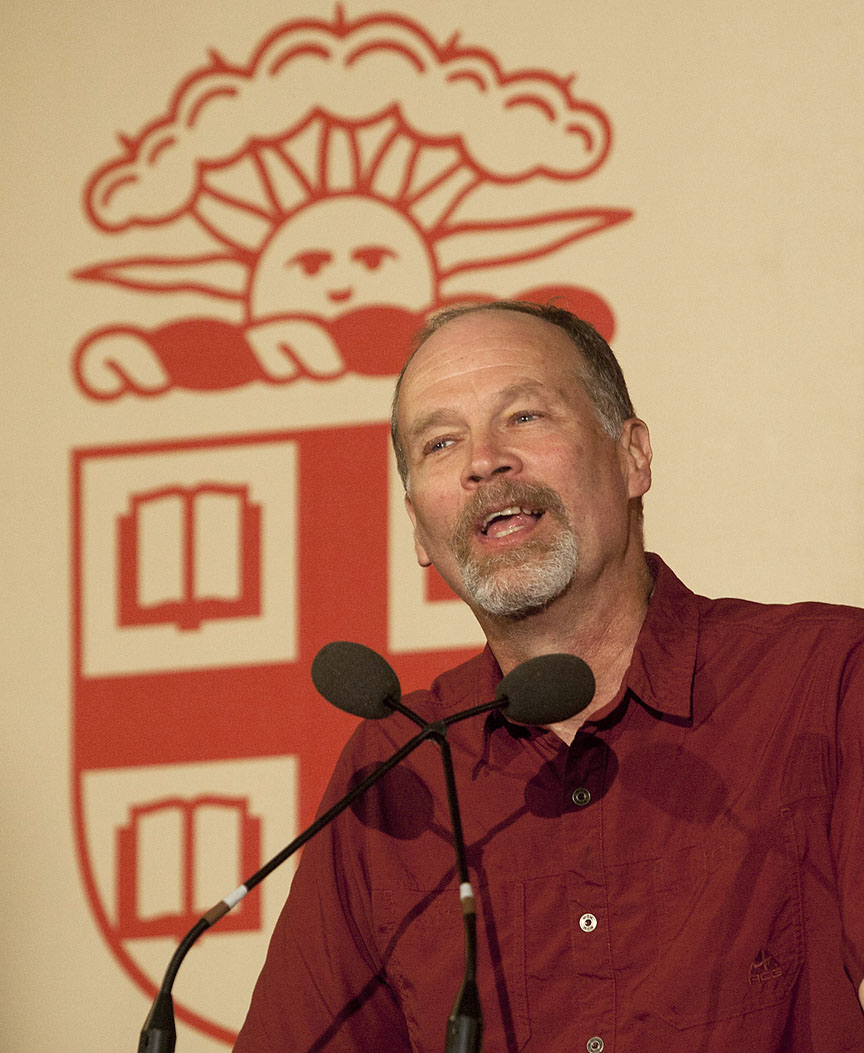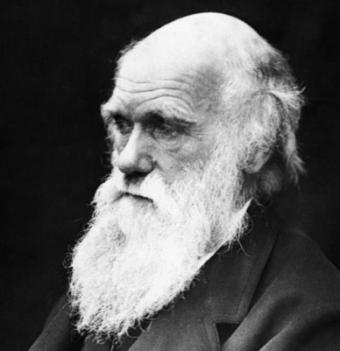America’s got a Darwin problem — and it matters. According to a 2009 Gallup poll taken on the 200th anniversary of Charles Darwin’s birth, fewer than 40 percent of Americans are willing to say that they “believe in evolution.” When another study asked if humans had developed from earlier species of animals, the American public split right down the middle. Forty percent said they had, while 39 percent rejected any suggestion that our species had emerged from the process of evolution. Even more worrisome is the fact that rejection of evolution correlates closely with political views, with a majority of the members of one of our major political parties casting themselves as Darwin rejectionists. In this election year, the strength of anti-evolution sentiment has been on full display in the presidential race, as one candidate after another declared their distrust of the scientific consensus around evolution. One member of the group, however, broke ranks with the others and boldly declared, “I believe in evolution and trust scientists on global warming.” How’d that turn out for him? Jon Huntsman’s early exit from the race confirmed something else he said at the time. “Call me crazy” for trusting science, he tweeted. And sadly, it looks like he was right.

You might think that since Americans are a practical, pragmatic people, this is an issue that would turn on the weight of the evidence. It’s not. In an age of molecular genomics, it is ever more apparent that the fingerprints of evolution are pressed deeply into human DNA, just as they are into the genomes of every other organism. Biologists understand this, and so do students who study the science of life. Whether conservative or liberal, fundamentalist or agnostic, the more students learn of biology, the more they accept evolution. So, why does public acceptance matter if the students who actually go into science see the evidence for evolution so clearly?
This is the heart of our Darwin problem. Significant numbers of Americans have come to regard the scientific enterprise as a special interest group that rejects mainstream American values and is not worthy of the public trust. Governor Rick Perry of Texas spoke to this view when he claimed that “There are a substantial number of scientists who have manipulated data” to their own benefit. Why? Perry was clear about this. It’s personal greed. Scientists cheat “so that they will have dollars rolling in to their projects.” Perry is hardly alone in his effort to depict scientists as greedy outsiders, “scamming the American people right and left” in the words of one Fox News commentator.
In American today, anti-evolutionism matters because it has become the vanguard of a genuine anti-science movement. To be sure, opposition to evolution isn’t new. State laws against the teaching of evolution actually go back nearly a century, and the famous Scopes trial took place 87 years ago. However, if you thought such things were behind us, guess again. Laws designed to encourage the teaching of non-scientific “alternative” theories to evolution were introduced in 11 state legislatures last year. This year, Darwin’s 203rd birthday, on February 12th, saw an anti-evolution bill, already passed by the Indiana State House of Representatives, awaiting action in the State Senate. Its fate there is uncertain, but there are plenty of reasons to be concerned.
Our Darwin problem is really a science problem. The easier it becomes to depict the scientific enterprise as a special interest immersed in the culture wars, the easier it becomes to reject scientific findings. We see this everywhere in American culture and politics today, from the anti-vaccine movement to the repeated assertion that global warming is a deliberate “hoax” rather than a straightforward conclusion driven by reams of scientific data. Sometimes this is done for deliberate political reasons, to secure advantage for a particular industry or financial group, but just as often it is motivated by fear of the implications of what science has discovered or might discover in the future.
Our Darwin problem matters for two reasons. First, it threatens the future of American scientific leadership in an increasingly competitive world. Convince enough young Americans that science is a close-minded system with a particular cultural and political agenda, and we will cede leadership to emerging countries that don’t share our Darwin hang-ups, and see science as the wave of the future. If you doubt this is happening today, look at the graduate programs of America’s research universities, still the greatest in the world. Increasingly, they are filled with bright, eager, creative students from around the world, taking places that American students just don’t seem interested in filling. Once trained, they will become the scientists of the future, while more and more of our own students have been persuaded that science has nothing to offer them. If this doesn’t change, scientific discovery will increasingly become something that happens elsewhere.
Second, and in my view just as important, our problem with science constrains and narrows our views and vision of the world. My personal concern for those who hold that view isn’t just that they are wrong on science, wrong about the nature of the evidence, and mistaken on a fundamental point of biology. It’s that they are missing something grand and beautiful and personally enriching.
Evolution isn’t just a story about where we came from. It’s an epic at the center of life itself. Far from robbing our lives of meaning, it instills an appreciation for the beautiful, enduring, and ultimately triumphant fabric of life that covers our planet. Understanding that doesn’t demean human life — it enhances it. We may be animals, but we are not just animals. We are the only ones who can truly appreciate, as Darwin put it, that there is “grandeur in this view of life,” and indeed there is. To accept evolution isn’t just to acknowledge the obvious — that the evidence behind it is overwhelming — it is to open one’s eyes to the endless beauty that life has generated and continues to produce. It is to become a knowing participant, in the truest sense, in the living world of which we are all a part.

